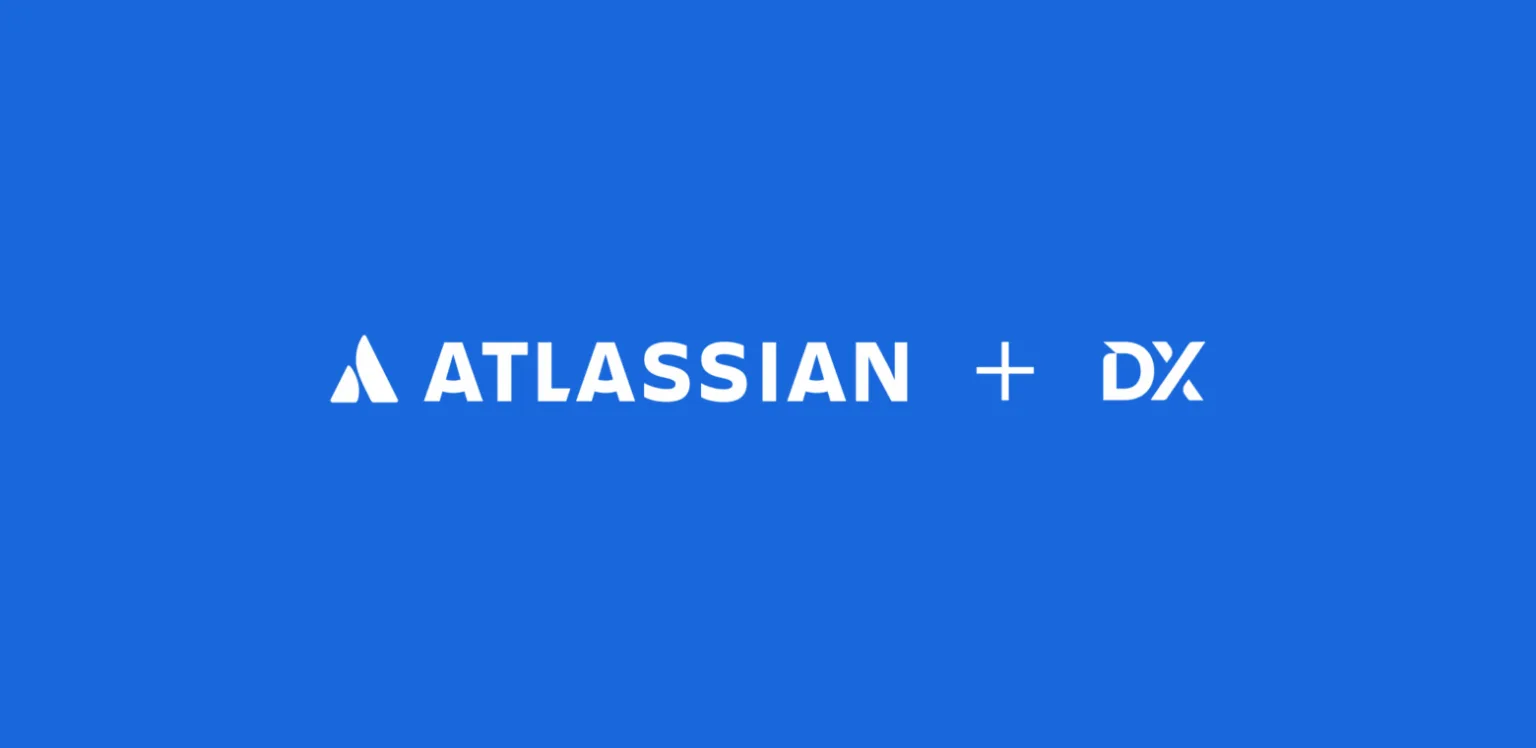Atlassian’s DX Acquisition: Atlassian just completed one of the most important moves in enterprise software development. The company finished its $1 billion acquisition of DX, a platform that measures, understands and improves developer productivity. This might sound like another corporate deal but honestly, it changes how teams approach development work, especially when AI tools are flooding the market.
Why does this matter for you? Because developers today are drowning in complexity. Your teams are using AI coding assistants, managing multiple tools and wondering if any of this actually makes them faster. Atlassian is solving that exact problem with this acquisition.
Atlassian’s DX Acquisition
Atlassian announced the deal back in September 2025 and just completed it in November. The company paid around $1 billion in cash and restricted stock to bring DX into its portfolio. This is not just another product addition. This is Atlassian saying something important: understanding your development workflow matters more than ever.
DX currently works with over 350 enterprise customers, many of whom already use Atlassian tools like Jira, Bitbucket and Compass. Nearly all of DX is existing customer base already has Atlassian products installed. The integration makes perfect sense from a business perspective but it also creates something powerful for teams
Mike Cannon-Brookes, Atlassian is CEO, described the vision clearly: Using AI is easy, creating value is harder. That line actually stuck with me because it is true. Every company now has AI tools but few understand if those tools are actually improving their work
The Real Impact
Here is the thing nobody talks about enough: most organizations have no idea if their engineering investments are working.
You spend money on new tools. You adopt AI coding assistants. You hire better developers. But then what? How do you know if these investments actually made your team faster? Historically the answer has been guess work, intuition and hoping things got better
DX changes that dynamic completely. The platform collects two types of data. First, qualitative metrics, which comes from surveys asking developers directly about friction points, pain and satisfaction. Second, quantitative metrics gathered from your actual engineering systems like Git commits, deploy times and code reviews
When you combine these approaches together the picture becomes clear. You can see exactly where your bottlenecks are and whether your AI investments are helping or just creating busywork
This matters most right now because enterprises are spending billions on AI adoption. They are scared. They want proof that these tools are worth the money. DX provides that proof
What is Actually Changing
Atlassian is integrating DX into something called the System of Work. This includes Jira, Bitbucket, Compass, Rovo for developers and now DX is engineering intelligence platform. All of these tools are designed to work together and share insights
The integration includes DX is Core 4 framework which measures developer experience across four dimensions. The platform also includes DevEx 360 surveys designed by researchers who built the DORA and SPACE metrics. These are not random questions. These are based on years of academic research about what actually makes developers productive
Rajeev Rajan, Atlassian is CTO mentioned something important during the announcement. Atlassian plans to offer different pricing tiers for DX. Historically DX focused on large enterprises but the goal now is to make it available to mid market teams and smaller organizations. For indie developers and founders managing technical teams this is significant news
The acquisition also addresses one specific problem that is becoming critical. When teams adopt AI coding tools like GitHub Copilot or Claude the volume of code increases dramatically. But does productivity increase? Does code quality stay the same? DX is designed to answer these exact questions
What Stands Out
Honestly what impressed me most about this move is that Atlassian is solving a problem that many teams do not even realize they have yet. Most engineering leaders are still asking basic questions about developer experience. They are wondering if their teams are happy, productive and burning out
Atlassian is jumping ahead. The company is saying the real question is not just whether your team is productive but whether your investments are actually driving that productivity. That perspective shift feels significant
Another thing that caught my attention. Nearly all of DX is customers already use Atlassian tools. This is not Atlassian acquiring some random platform. This is Atlassian acquiring a platform that fits perfectly into workflows that hundreds of thousands of teams already rely on
The timing also matters. AI adoption is happening so fast right now that measurement and understanding have become critical business needs. Organizations that can prove their AI investments are working will have stronger business cases for future spending. Organizations that cannot prove ROI will get burned
Who Benefits Most
Let us break down who actually benefits from Atlassian’s DX Acquisition:
For engineering leaders: The visibility improves dramatically. You will have real data about where friction exists in your development process. You can stop guessing and start making decisions based on facts. You will know if that expensive AI tool is helping your team or just generating more code to review
For development teams: The real benefit is less obvious but potentially more important. When organizations use DX data to identify friction points teams actually see improvements. If DX shows that code review is taking too long your org can fix that. If DX shows that context switching between tools is killing productivity your team can fix that. Developers benefit because someone is finally listening to their pain points with real data backing
For indie developers and startup founders: This matters because Atlassian is planning to make DX more affordable through tiered pricing. As a founder managing developers or as someone running a small development shop you need visibility into your team is productivity. Previously this was only available to giant enterprises. Now it might be accessible to smaller teams
For Atlassian is 300000 plus customers: The integration into existing tools means you get developer experience insights without adding vendor chaos. Everything lives in your current system. The dashboard probably appears right alongside your Jira board
Comparisons and Market Context
Let me put this in perspective. Microsoft has GitHub and Azure DevOps. Those tools have development data built in. But they lack what DX brings which is deep developer experience measurement combined with AI impact assessment. Microsoft is tools can tell you what code was written. DX tools can tell you if your developers are happy, the code is valuable and AI is helping
That difference matters. GitHub is primarily a version control and development platform. DX is an analytics and measurement platform specifically designed around developer health and team productivity
Asana and Monday.com focus on project management. They have no developer centric tools and they definitely lack productivity measurement. This acquisition puts Atlassian significantly ahead in this specific space
Inside the analytics space there are standalone tools that measure engineering productivity. But Atlassian is approach is different. By integrating DX directly into the workflow tools that teams already use daily the data becomes part of how teams actually work instead of something separate that requires special attention
What is Not Perfect
I want to be honest about what could be better here. Integration is never simple. Atlassian is bringing together two different platforms two different teams and two different cultures. Until DX is fully integrated into Jira Bitbucket and Compass there is going to be some rough edges
Another concern is adoption. DX surveys only work if developers actually fill them out. Response fatigue is real in development teams. You already get surveyed about satisfaction, culture, learning and more. Adding another survey tool could just feel like more work. The qualitative data is only as good as the participation rate
There is also a chicken and egg problem. Teams need to use these tools and share data to get meaningful insights. But many teams are hesitant to share internal metrics especially when layoffs are happening. Some leaders might worry that productivity data could be weaponized against teams during downsizing
Pricing is also a question mark. Atlassian says DX will be offered at different tiers but nobody knows the exact pricing yet. Will it be affordable for mid market teams or will it end up being another expensive enterprise only feature?
The Road Ahead
The integration timeline is important. DX is being added to the Atlassian Software Collection which includes Bitbucket Bitbucket Pipelines Compass and Rovo Dev. Over the coming months and quarters this integration should become deeper and more seamless
Expect new features that combine DX is data with Atlassian is existing tools. Imagine a Jira dashboard that shows not just your tasks and sprints but also developer satisfaction metrics for each team member. Imagine pull request reviews that include productivity impact analysis. These integrations are coming
Atlassian is also hinting at AI enhancements through Rovo Dev. As that AI assistant becomes smarter it could potentially use DX data to make better suggestions. Your AI copilot could understand your team is specific bottlenecks and focus suggestions on solving those problems
For smaller teams and indie developers watch for pricing announcements. If Atlassian keeps to its promise of tiered pricing this acquisition could become accessible to teams that previously could not afford this level of insight
Is This Worth Your Attention?
Atlassian is $1 billion DX acquisition signals something important. Developer productivity measurement is moving from niche analytics tool to essential enterprise infrastructure. The companies that understand their development workflows and can optimize them will compete better than those who cannot
If you are an engineering leader this acquisition should matter to you. Your ability to measure and improve developer experience is becoming a competitive advantage. If you are a developer your experience is becoming quantifiable and that means organizations might actually fix the things that slow you down
If you are building a startup and managing developers this acquisition shows that understanding your team is productivity is worth investing in. As this gets integrated into Atlassian is ecosystem it might become more affordable for smaller teams
The real takeaway here is not about the acquisition price or corporate strategy. It is about a fundamental shift in how organizations understand and value developer work. For the first time at scale organizations can measure their engineering productivity in meaningful ways. What they do with that data will determine whether AI adoption becomes transformative or just expensive
Atlassian’s DX Acquisition represents a maturation of how development teams are managed. From intuition to data. From guessing to knowing. From hoping investments work to proving they do. That evolution matters for anyone involved in building software








